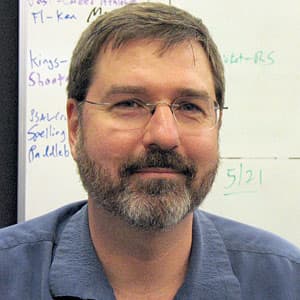Advertisement
Ken 'The Hawk' Harrelson's Life In Baseball
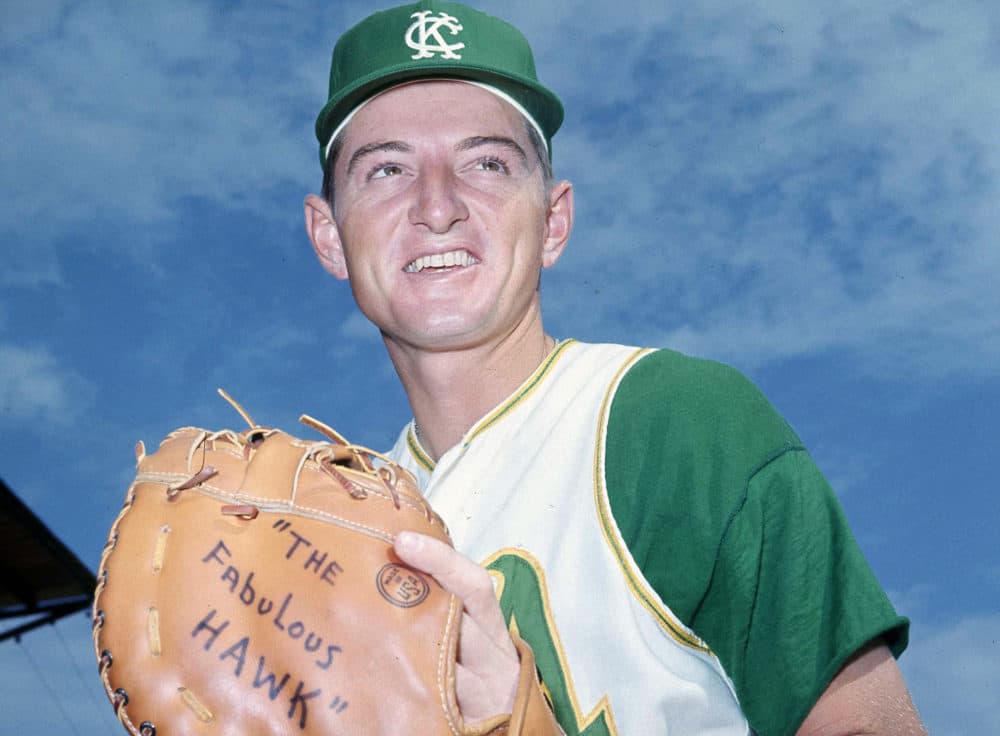
Ken Harrelson has the benefit of baseball hindsight.
"The culture of the game of baseball was different in those days," he says. "There’s no question about that."
For Harrelson, 'those days' began in 1963. On the morning of June 9, he was a first baseman for the minor league Portland Beavers. Until he was woken by a 1 a.m. phone call.
“Son, pack your stuff, you’re coming to the Big Leagues,” demanded Charles O. Finley, the eccentric owner of the Kansas City Athletics. Harrelson, the rookie nicknamed "Hawk" because of his birdlike profile, was soon hitting well against some of the best Major League pitchers. On July 13, in a game against the Cleveland Indians, he went up against one of the greatest of all time.
The Knockdown Pitch
"Early Wynn. 'Gus' was his nickname," Harrelson says.
The aptly-named Wynn was playing the last of his 23 big league seasons and going for his 300th career victory.
"The first time up, he threw me a high slider, and I hit a rocket right back through the middle," Harrelson says. "Just missed his head. Maybe a foot, foot and a half. So I get back to the dugout. And Bobby Del Greco was an outfielder on our club. And he comes over to me, and he says, 'Hawk,' he says, ‘Now, the next time you face Gus, you better hang loose.’ "
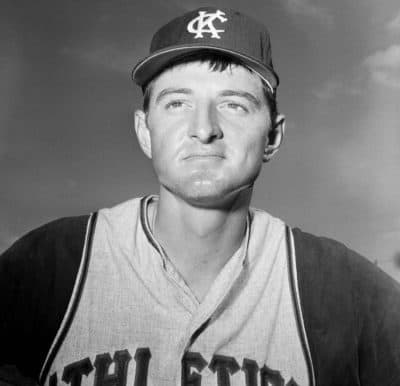
That was baseball-speak for "expect a knockdown pitch."
"And I said, 'Why?' He said, 'Because there’s two things you don’t do against Early Wynn: you don’t bunt on him, and you don’t hit the ball back through the middle on him.' He said, 'Well, he’s gonna knock you right on your behind.' I said, 'That old fart ain’t gonna do anything.' And sure enough ... I go to the plate the next time. I tell you, first pitch was right behind my head. And my feet went straight up in the air, and I landed on my shoulders."
Wynn got his 300th victory. It was the last of his career. And Harrelson soon learned that he had perhaps a more troublesome opponent: Charlie Finley, the man who signed his paycheck.
Salary Issues
"The minimum salary back in those days, Gary, was $6,000," Harrelson says. "In fact, my first two years in the Major Leagues, I made more money shooting pool, playing golf and arm wrestling than I did playing Major League Baseball."
Harrelson continued to play well as a rookie. But he felt he deserved more than the minimum salary. So he requested a meeting with Finley to discuss a raise.
This was before the days of high-powered agents.
One morning, after a successful road trip, Finley invited Harrelson to visit him in the fancy downtown Kansas City hotel where he lived.
"And I just couldn’t wait to see him," Harrelson says. "And I was saying to myself, 'What’s he gonna pay? 10,000? 12,000? 15,000?' So I walk into his suite, and he’s got this table laid out with Danish and eggs and bacon and orange juice and milk and all that stuff. And I noticed, you know, like, a tube."
It looked like an empty paper towel tube.
Advertisement
"He goes, ‘C’mon in, son,’ " Harrelson says. "He says, ‘You had a pretty good road trip. But I’m gonna show you what you’ve been doing wrong.’ And he goes over and he picks up this tube. And he had a towel on the floor like home plate. And my heart just sank. Because I knew that there was gonna be no raise. And I was right. Because he didn’t even broach the subject whatsoever."
Charlie-O The Mule
Two years later, Finley gave him a chance to earn some extra dough at Yankee Stadium.
"He said, ‘I need somebody to ride Charlie-O the Mule around the warning track today,’ " Harrelson says.
Missouri Gov. Warren Hearnes had donated a mule to the A’s. Charles O. Finley named it after himself.
"Charlie-O the Mule was absolutely one magnificent animal," Harrelson says. "It was the biggest mule I’ve ever seen. He was gorgeous."
Finley saw an opportunity to market his team by taking his beautiful mule everywhere the A’s played. And asking his players to ride it. The A’s didn’t care to at first. But in New York, Finley finally put his money where his ass was.
"And he says, ‘I’ll tell you what. I’m gonna give whoever does it 25 bucks,’ " Harrelson says. "So I stuck up my hand real quick. You know, when you’re making $6,000 a year and you go to New York and start off, say, a two-week road trip, and you’re getting $10 a day meal money ... I mean, New York can kill you."
Harrelson got the assignment.
"So I jumped up on him, and I put my bill of my cap up like a jockey’s cap," Harrelson says. "And I started from home plate, going down third base. And I come up on the Yankee dugout. And I see Roger and Mickey sitting in the corner."
That would, of course, be Roger Maris and Mickey Mantle.
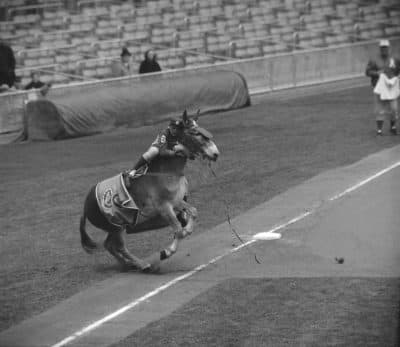
"Maris has got a fungo in his hand," Harrelson says. "And Roger throws this fungo and hits Charlie-O in the ass. And he starts bucking. And I’m telling you what … I slipped underneath, because there was no saddle or anything. And I’m staring him right in the face. And his teeth looked like they were four or five inches long. And my nose is long, so that was not a good matchup."
Harrelson had a big plug of tobacco in his mouth.
"So I’m hanging on for dear life," Harrelson says. "And, finally, his trainer comes running out. And he says, 'Let me get him, let me get him!' So he grabbed his mane. And he said, 'Ok … jump off!' So I let go. And when I did, I hit the ground. And I ran right to the dugout — right up in the runway — and started throwing up. Because I swallowed the whole chaw of tobacco. But … I got the 25 bucks!"
Soon, Harrelson would learn how readily Charlie Finley would spend his money. Only … on his beloved mule.
"In Detroit, we were staying at the Sheraton Cadillac," Harrelson says. "And he had them knock down a wall between two suites. And he had them put straw in there and everything else. Charlie-O the Mule had a suite, and we were sleeping two and three to a room.
"Plus, Charlie-O had a beautiful trailer. You know, it was green and gold with 'Charlie-O the Mule' painted on the side. And he had an air-conditioned trailer. And we had buses that had no air conditioning in it. He treated him like he was royalty, and he treated the players like, ‘You don’t mean anything to me.’ "
Brush With A Legend
Yet, for all of Finley’s issues, Harrelson did admire him for one thing.
"Charlie was, let me tell you something about Finley. He had some really innovative and creative ideas," Harrelson says. "He really did. And he had some that were just off the wall. He was trying to attract fans to come to the ballpark. Because in those days in Kansas City, our club was not very good."
One of Finley’s innovative ideas was to sign Negro League and barnstorming legend Satchel Paige to a one-game contract.
On Sept. 25, 1965, Paige took the Municipal Stadium mound against the Boston Red Sox. Finley did not ask Paige to mind his mule. He actually went out of his way to make the pitcher comfortable.
"He bought Satchel a nice rocking chair that they put down in the bullpen area," Harrelson says. "And so Satchel would sit in that rocking chair and rock back and forth during the game.
"He was just a unique, wonderful person. And I’ll never forget the time that I spent with Satch and the stories he told me."
Ken Harrelson
"The only hit he gave up was a double off the left-center-field wall to [Carl] Yastrzemski on a 3–0 count. And it was amazing, because Satchel was probably throwing 60 miles an hour."
Satchel Paige exited after three innings to a standing ovation. That game was his last as a Major Leaguer.
"I went to him after the game," Harrelson says. "And I said, 'Satch, can I have your glove?' And he said, 'Sure.' He gave me his glove. It was a Wilson A2000. And I kept that glove."
And then … he lost it. I ask Harrelson if not being able to find that glove eats at him.
"Well, it does," Harrelson says. "Not for me. But for the Hall of Fame. For people to see it. That was his last glove that he used in a Major League game.
"He was just a unique, wonderful person. I’ll never forget the time that I spent with Satch and the stories that he told me."
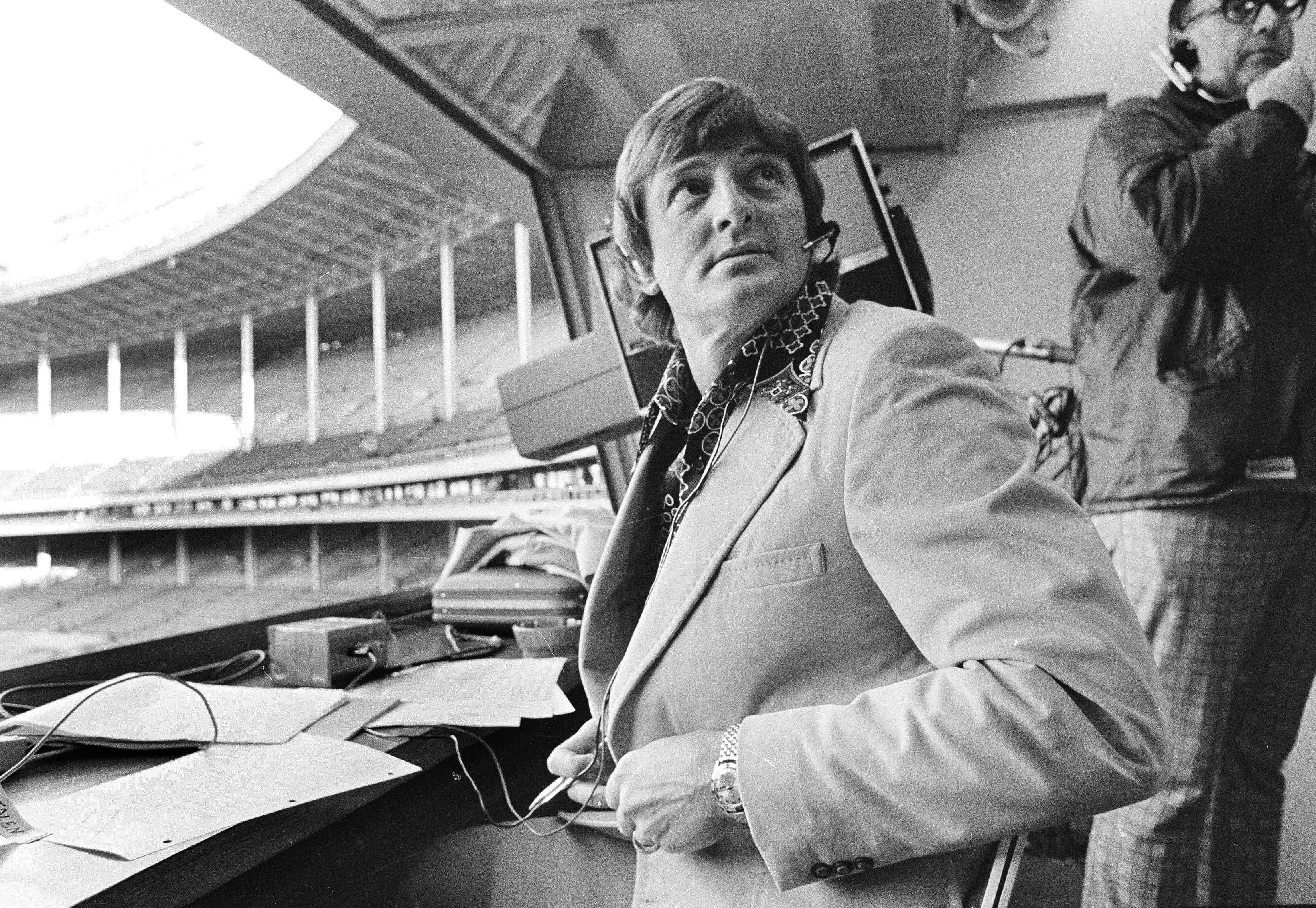
Post-Playing Days
Ken Harrelson was released in 1967 by the Kansas City A’s after the team fired manager Alvin Dark and Harrelson called Finley "a disgrace to baseball." The Hawk ended up on the pennant-winning 1967 Boston Red Sox. He ended his playing career in 1971 with the Cleveland Indians.
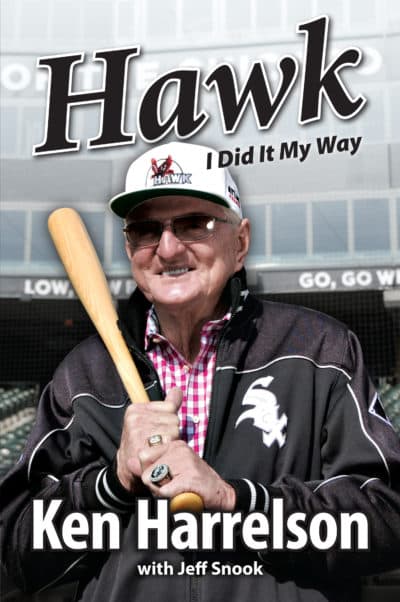
Harrelson began a television broadcasting career in 1975. In his years as a player and television guy, he’s seen a lot of baseball. When pressed, he steadfastly maintains that the game just isn’t what it used to be. In fact, he says, it’s a lot better.
"I know they are a lot of guys in my age group that say ‘Well, these guys are not as good as we were,’ " Harrelson says. "Well, that’s B.S.
"These guys today are so much better and talented. They’re bigger, they’re stronger, they’re faster. And they do things that we didn’t even think about. That’s one reason that I’ve stuck around a long time. Because I’ve enjoyed it. I love baseball today more than I ever have."
Ken Harrelson, now 76 years old, will call 20 White Sox home games this season and then move into a new role as White Sox ambassador.
He has his eye on a particular date: Jan. 1, 2020. That’s when he hopes to join Vin Scully, Tommy Lasorda, Dave Garcia and Don Zimmer as the only people who worked in baseball for parts of eight decades.
"Gary, I wouldn’t change a thing," he says. "I wouldn’t change a thing."
Ken Harrelson's new book is "Hawk: I Did It My Way".
This segment aired on August 11, 2018.
